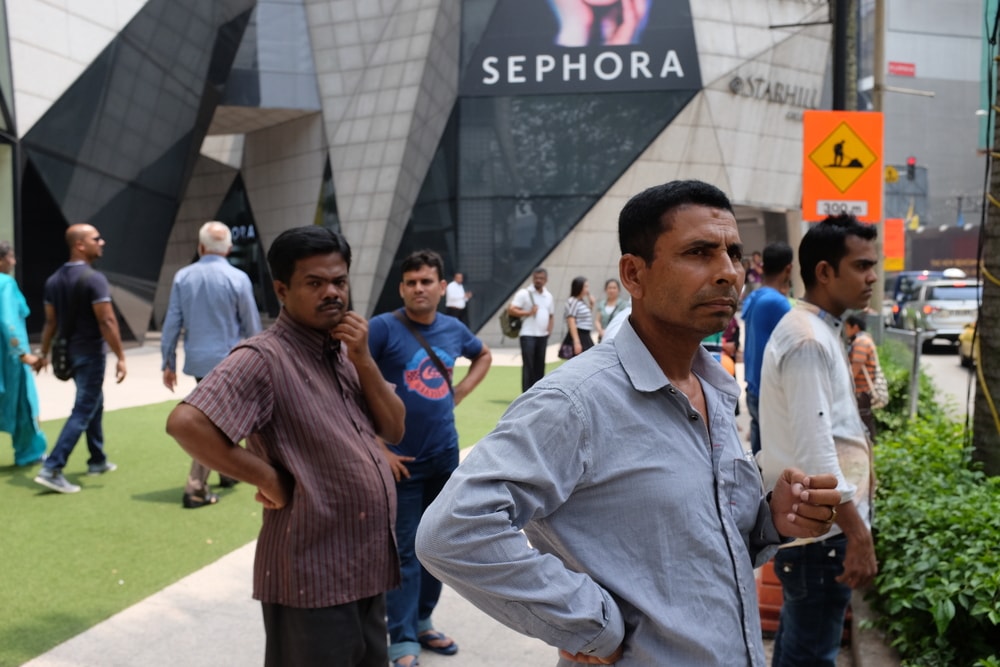In over eight years of living in Malaysia, there have been a few moments that I consider to be seminal – moments that have revealed to me truths about Malaysia both reassuring and discomfiting. Living here as an expat, as many of us have found, is a very enjoyable experience.
And so early on, when asked by locals, “How do you find Malaysia?” I would briefly think of quipping back, “By looking on a map of Southeast Asia,” and then go with the more appropriate response, “I think it’s a great place to live as a foreigner.” Over the years, however, I’ve had to modify that answer, because the hard truth is, Malaysia is a great place to live only if you’re the right kind of foreigner. I’ve talked to Filipinos, Indonesians, and others who are here as foreign workers – a notably distinct category from expats – and life in Malaysia is not nearly as good for them. They’re too often harassed by police, exploited (or even abused) by employers, and generally treated as expendable.
What brought this home to me was an incident several years ago when I roundly scolded a police officer at a road block into my neighbourhood. As there is only one way in or out, the block caused a lengthy jam, and after a long day at work, I just wanted to get home. So despite being waved through the road block, I motioned the officer to come over, rolled down my window, and gave him a piece of my mind before driving off. When relaying the story to my local friends, they were aghast, with literally every one of them telling me, “You do realise the only reason you got away with that is because you’re white!” Well, I didn’t then, but I do now. As I looked into the matter after that, it indeed became clear to me that had a Burmese labourer mouthed off to a cop like that, it would have ended very differently.
Another illuminating moment was at a similar time, roughly six or seven years ago, when then-Deputy Prime Minister Tan Sri Muhyiddin Yassin publicly and repeatedly proclaimed that he was “Malay first, Malaysian second.” As an American, this was a completely alien comment to me, particularly coming from one of the most senior officials in the government – akin to the US Vice-President holding a press conference and boldly declaring that he was a white man first and foremost and an American second. That moment showed me that in Malaysia, politics is largely race-based, even after nearly six decades of nation building following independence.
A couple of years later, another moment occurred on a stroll through an orang asli settlement with one of my friends, who is Chinese Malaysian. We were talking about Malaysia’s history and progress, and I was prattling on about how much promise and potential the country had, and how far it had come, and he flatly said, “I just don’t see it that way. But then, I feel like a second-class citizen in my own country, so maybe that’s why.” I’m not sure why it stunned me the way it did; after all, minorities in any country must feel much the same at times. Yet I had allowed myself the apparently delusional luxury of thinking Malaysia was different.
Over the years here, I have lost several of my good local friends to the lure of emigration. They have elected to leave their home country, and none have returned. Australia, Singapore, the UK, Ireland, the US – all these countries have claimed my Malaysian friends. I was reminded of this very recently in reading the results of a late 2016 study by Oxford University, reported by Free Malaysia Today, which validated the popular notion that most Chinese and Indians in Malaysia would be very keen to leave the country. Surprisingly, 15% of Malays surveyed felt similarly.

Increasingly, the study suggested, Malaysia’s young are taking a pessimistic view of their country’s future, largely because of race- and religion-based divides, which seem to be increasing. More than 5,000 Malaysians a year renounce their citizenship; the overwhelming majority of those are Chinese. According to Azrul Mohd Khalib of the activist group Bebas, this is cause for serious concern. Referring to the ongoing exodus of Malaysians, he said, “Our attitude should not be ‘good riddance’. We should ask why this is happening. This is the price we are paying for the continuation of race-based and religiously biased policies which should have been retired decades ago.”
Last year, I went to KL’s historic city theatre, just by Merdeka Square, and thoroughly enjoyed the staging of the feel-good musical show MUD: Our Story of Kuala Lumpur. The remarkable show highlighted the early days of the city and focused on the teamwork and shared efforts of the three main races of the country – along with British colonists – in building Kuala Lumpur, overcoming adversity, and laying down the foundations for a shared culture.
The performance underscored the idea that it really does take a village to build a village, and that everyone, of every race, has a place at Malaysia’s table. It was a delightful story, but now I wonder, all these years after the events that inspired it, whether it still rings true?
A version of this article was originally published in The Expat magazine (June 2017) which is available online or in print via a free subscription.
"ExpatGo welcomes and encourages comments, input, and divergent opinions. However, we kindly request that you use suitable language in your comments, and refrain from any sort of personal attack, hate speech, or disparaging rhetoric. Comments not in line with this are subject to removal from the site. "





















